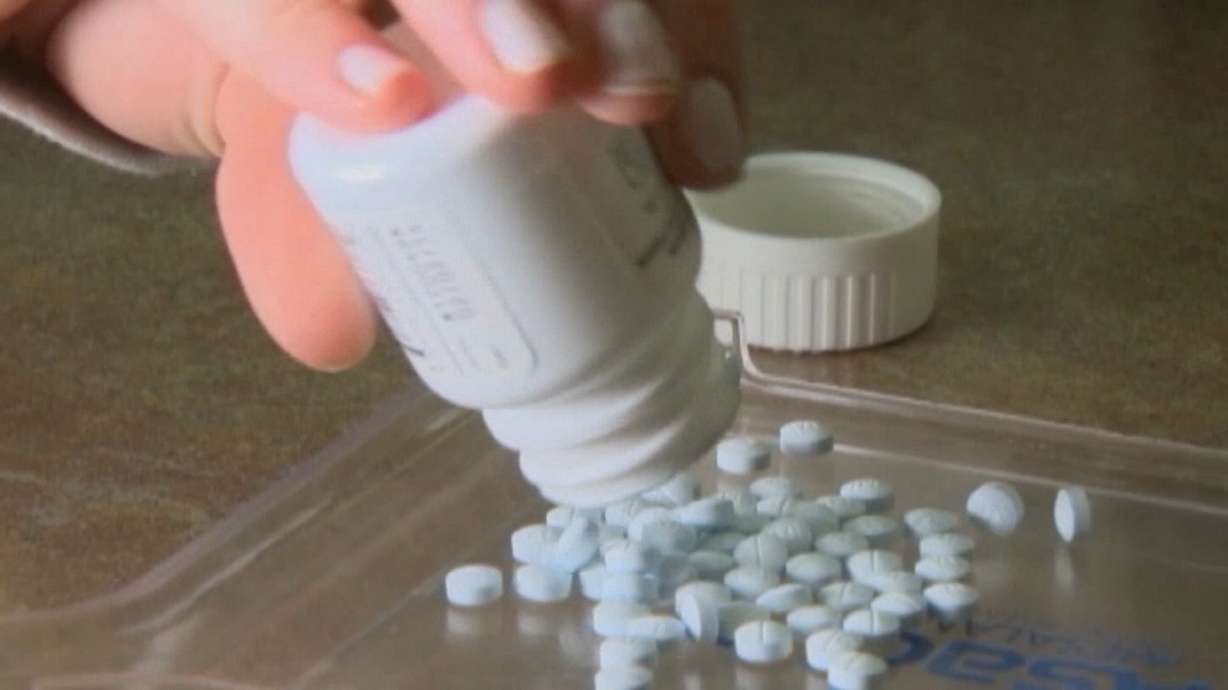Estimated read time: 3-4 minutes
This archived news story is available only for your personal, non-commercial use. Information in the story may be outdated or superseded by additional information. Reading or replaying the story in its archived form does not constitute a republication of the story.
SALT LAKE CITY — University of Utah Health researchers will use $2.6 million from the National Institutes of Health to study new substances to see if they can be effective in treating pain without the addictive side effects of opioids.
The funds, announced late last month, are to be used over the course of the year by University of Utah Health's College of Pharmacy, which will oversee the testing of "blinded samples of small compounds, natural products and biologics" sent out for testing by the National Institute of Neurological Disorders and Stroke, the university said in a release.
Those substances will be screened as "potential, nonaddictive treatments to alleviate pain for future clinical trials," explained University of Utah Health science writer Stacy Kish.
"It's a really important problem from a public health perspective," said Karen Wilcox, chairwoman of Pharmacology and Toxicology at the U.'s College of Pharmacy. "The opioid crisis certainly has affected people I've known. It certainly affects many, many people in the state and the country.
"So we're just really glad that we're being given this opportunity to help out, and help develop a screening program that might yield some real good products at the end of it — some real good outcomes."
The National Institute of Neurological Disorder and Stroke "solicits compounds from drug companies, medicinal chemists, (and) biotechnology companies," Wilcox said, "and sends them to us."
U. researchers are interested in drugs that do not rely on pain relief pathways that run through the receptors in the opioid system of the brain, Wilcox explained. She said "the opioid drugs work so well because they (target) that system," but also create dependence.
Other nervous system circuitry may also be able to suppress pain in a different, less-dangerous way if a different class of drugs is found to be effective, she said.
"That's a challenge, because you want to find novel targets, and we're really still finding out about the central nervous system, and the peripheral nervous system. "There's still lots for us to understand. So the hunt is on for new molecular targets," Wilcox told the Deseret News.
Any substances that researchers identify as potent, but are deemed to still carry a risk of addiction similar to that of opioids, "won't go any further in the program," according to Wilcox.
"We don't want to even develop those drugs. We've been there, we've done that with the opioid crisis, so we want to be looking for something different. … We're going to kind of root out any of those things right away, so that they don't go further into the program and waste a lot of time and effort and development," Wilcox said.
She said University of Utah Health has a strong relationship with the National Institutes of Health, having received funds from that organization for 43 years to similarly screen various epilepsy therapies, including anti-seizure medications that have eventually gone to market.
Researchers there have "helped identify many potential therapies for epilepsy over the years," said Amir Tamiz, director of the Division of Translational Research at the National Institute of Neurological Disorders and Stroke, and likewise "the scientific community will (also) be able to take advantage of this resource to identify and characterize nonaddictive pain therapies.”
The funds given to University of Utah Health stem from the National Institutes of Health's HEAL Initiative, a wide-ranging federal effort launched this year designed to accelerate research efforts that could help curb opioid addiction across the country.
According to federal estimates, Kish said, more than 100 Americans die each day from an opioid overdose. In 2017, 237 Utahns fatally overdosed on prescription opioids, and 159 overdose deaths in Utah were linked to heroin, an illicit opioid, state leaders said last month. Data spanning 2013 to 2015 indicates Utah has the seventh-highest drug overdose death rate nationwide, the State Department of Health says.









